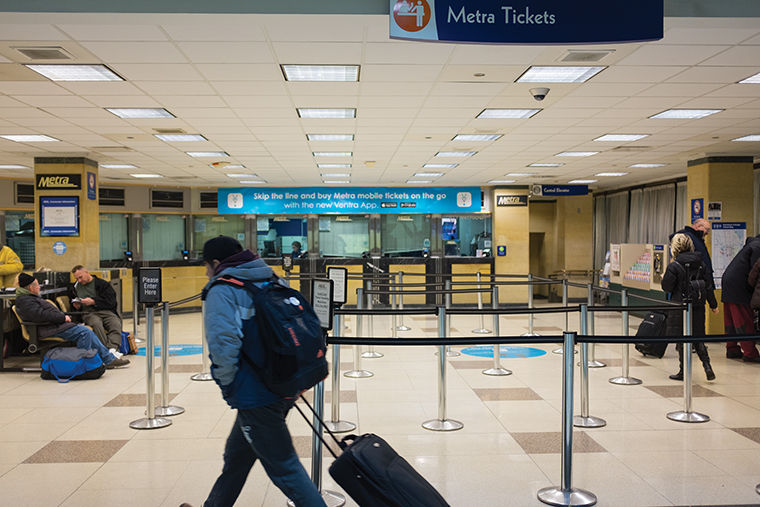Metra increases fares to fund capital projects
February 13, 2017
Facing ongoing financial constraints, Metra has raised fare prices for the third year in a row.
Effective Feb. 1, customers will pay 25 cents more for a one-way ticket, $2.75 more for a 10-Ride ticket and $11.75 more for a monthlong pass, according to the Metra website. The decision was made in November 2016 after the commuter railroad company failed to make up capital funding needed for a series of incomplete structural and equipment projects.
“We evaluate the budget every year,” said Metra Spokeswoman Meg Reile. “In this case, that increased revenue is entirely allocated for use on capital projects.”
The fare increase is expected to bring in $16.1 million in revenue by the end of 2017 with all proceeds going toward capital improvement projects, such as repairs to facilities and a car rehab program, according to Reile.
Reile said Metra’s capital budget has remained flat for some time. The company has more than $11 billion in capital needs over the next ten years, and it receives only about one-third of that, she added.
Sophomore journalism major Ariana Dolce lives in the city but takes the Metra a few times a month to visit family in the suburbs, using one-way tickets or weekend passes. Dolce said she will probably continue to use Metra on occasion but will instead rely more on receiving rides from family.
“[Before the increase, it] was still kind of heavy on the pocket, and now it’s going to be even heavier,” Dolce said.
Government Relations Director of the Active Transportation Alliance Kyle Whitehead said while it is never good news when a transportation agency decides to raise fares, Metra is facing a lack of support from other levels of government.
“We would love if [transit was] even more affordable, but we also think it’s important to recognize the need to invest, improve and expand public transit in the Chicago region,” Whitehead said. “Responsibility doesn’t just fall on the transit agencies themselves but also our local, state and federal elected officials.”
Whitehead said because there has been a growing interest in riding transit in the Chicagoland area, an additional burden companies bear is to improve on the system’s infrastructure.
“From their perspective, the only way they can [improve] is with this schedule of fare increases over the next several years,” he said
For many citizens in Chicago and the surrounding suburbs, Metra is the best option available for convenient and affordable transportation for those who do not have access to a vehicle, he added.
“In many cases, people rely on Metra to be able to access jobs they wouldn’t otherwise be able to access if they didn’t have a Metra station in their community,” Whitehead said. “The more people we can move through transit, the better off everybody’s going to be because we can have a more walkable, bikeable and livable city.”








